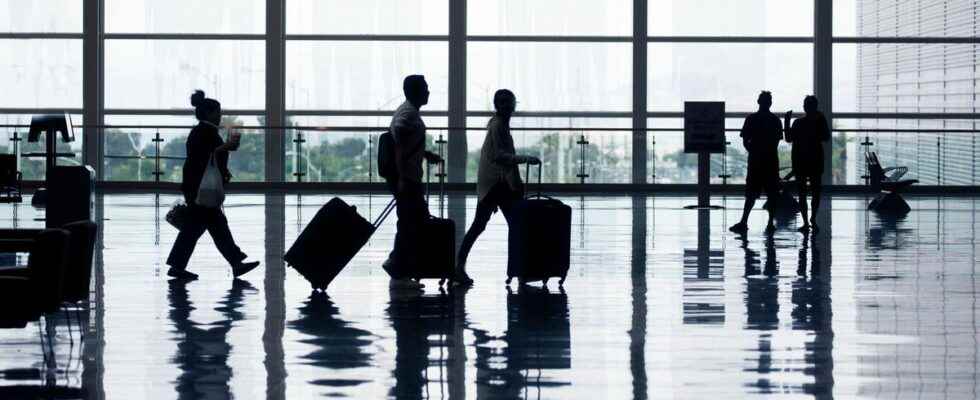Published on
Updated
Reading 3 mins.
in collaboration with
Dr Gérald Kierzek (Medical Director)
Faced with the explosion of Covid-19 cases in China, the government presented on Sunday January 1 the system put in place and targeting arrivals on French soil. Random tests are already in place. A negative test before departure will be requested from January 5th.
By ending its zero covid policy at the beginning of December, China inevitably found itself in an unprecedented situation of contamination explosion for the country: we are talking about 500,000 new cases per day. A figure that cannot be verified, but seems plausible. Faced with this wave, the European Commission met at the end of last week to discuss possible measures. Several countries, including France, have decided to act as announced on Sunday January 1 by the Minister Delegate for Transport, Clément Beaune and the Minister of Health, François Braun from Roissy-Charles-de-Gaulle airport according to “a flexible, extremely responsive device”.
Three measures implemented by France
According to the decree published in the official journal on December 31, there will therefore be several measures put in place immediately or on January 5. The control procedures imposed on travelers coming from China and bound for France include:
- A negative test of less than 48 hours to present at boarding for travelers over 11 years old from January 5;
- Wearing a mask during the flight for all travelers over 6 years old;
- The commitment to submit to a random screening campaign upon their arrival.
From Sunday, the first optional random tests were carried out on arrival in France. “This has already made it possible to test around fifteen people on the first flight”, announced Clément Beaune. For the time being, these measures are in place until January 31, according to the decree. “If we have to extend them, they will be extended”, has already warned the Minister of Health. If the people tested on French soil prove positive for covid, they will not however be rejected, but monitored: the people will therefore be contacted to receive instructions for the usual seven days of isolation.
“Of course, if they are positive with a variant that we do not know, a new variant, we will have to monitor them much more closely”said the Minister of Health.
Other countries such as Italy, Spain, the United Kingdom, the United States or Japan have also implemented the same kind of restrictions. However, for the moment in the absence of European coordination, it is still possible to “take a flight to certain European capitals without control, before reaching France by train”, admitted Clément Beaune. EU member states are due to discuss a common response on Wednesday.
How effective are these measures?
For the Minister responsible for Transport, the implementation of controls is “important in terms of confidence and precaution”. Checks on arrival are not, however, intended to “prevent citizens from entering our territory”, but rather to monitor the evolution of the variants, for his part specified François Braun. A bias that does not satisfy everyone.
For Brigitte Autran, immunologist and president of the Health Risk Watch and Anticipation Committee (Covars) which replaced the Covid-19 Scientific Council a few months ago, the interest “swould be to do a systematic test to analyze what type of variant is carried” positive people arriving in France. But such a variant sequencing device would prove too “heavy”.
For Dr. Kierzek medical director of Doctissimo, it is a question of understanding the strategy put in place, between reassuring gesture and epidemiological monitoring.
“These measures will never be 100% effective and the objective today is not to prevent the arrival of a patient or a new variant. But above all to slow down and monitor, by random tests with sequencing if a viral modification is in progress”.
Also, to those who may think that this is not enough and who fear a new wave from China, the doctor explains:
“This is a measure aimed at epidemiological surveillance, the objective is not to have an airtight barrier. We multiply the filters to be able to reduce and slow down the potential diffusion, but there will be no completeness”.
